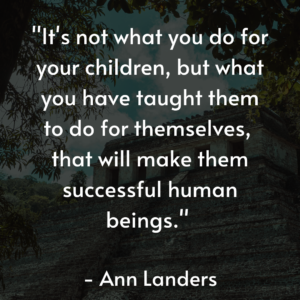Zara had enrolled for the MBA program at a prestigious institution and had been assigned to me as my mentee. At our first meeting over coffee, she seemed to be an accomplished individual, yet utterly adrift.
Zara sat across the table, her eyes reflecting a profound sense of isolation. The hum of the coffee shop faded as she recounted her life, a narrative etched with the silent pain of stifled independence. “I feel like a fish out of water,” she confessed, her voice barely a whisper. “I don’t know how to start a conversation, how to navigate this world.”
“People kept away from me,” she explained, a flicker of sadness in her eyes. “They found I wasn’t like them.”
The image she painted was vivid: the daily ritual of her parents escorting her to the bus pick-up point, her father carrying her bag, her mother holding her water bottle, the house-help waiting at the pick-up point. She watched, a silent observer, as her classmate, a boy from the same complex, rode his bicycle to the bus stop, a symbol of freedom she yearned for while she dragged her feet to school.
Even college, a supposed bastion of independence, was no different. Her father drove her to college, her driver fetched her, and her mother called during the short commute. This constant, suffocating presence, while rooted in love, created a barrier, a wall that isolated her from the very experiences that shape a person.
Beneath the surface, lay a story of a life meticulously curated by well-meaning parents, a life where every step was well-managed, every potential hurdle removed.
Now, in a new city, facing the challenges of an MBA program, Zara was adrift. The simple act of ordering food, making decisions about her day, or forming friendships felt insurmountable. The very skills that most take for granted were foreign to her. Her parents, in their desire to protect, had inadvertently created a profound sense of helplessness. She was clearly a victim of over-parenting.
Are We Building Walls?
Are we, like Zara’s parents, unwittingly through over-parenting building prisons for our children, prisons made of overprotection and control?
We live in a world that often prioritizes safety and success, leading us to shield our children from the inevitable bumps and bruises of life. But in doing so, are we robbing them of the very experiences that build resilience, independence, and the ability to navigate the complexities of the world?
Recognize the Signs of Over-parenting:
Zara’s case, though extreme, highlights the subtle nature of over-parenting. It often begins with small acts of intervention, seemingly harmless gestures of love and support. But over time, these actions can create a dependency that cripples a child’s ability to thrive.
- The “Rescue Reflex”: Constantly stepping in to solve problems, complete tasks, or mediate conflicts, preventing children from developing their own problem-solving skills.
- The “Safety Net Syndrome”: Shielding children from any potential risk or discomfort, even those that are necessary for growth and learning.
- The “Micro-Manager Mentality”: Controlling every aspect of a child’s life, from their schedule to their friendships, leaving no room for autonomy.
- The “Performance Pressure”: Focusing solely on achievements and outcomes, neglecting the importance of effort, process, and personal growth.
- The “Emotional Buffer”: Constantly smoothing over difficult emotions, preventing children from developing healthy coping mechanisms.

Tips to Foster True Independence in Your Child:
Zara’s story isn’t a condemnation of parental love, but a plea for a more balanced approach. We must learn to distinguish between protection and overprotection, between support and control.
- The Art of Letting Go: Gradually relinquish control, allowing children to make age-appropriate decisions and experience the consequences of their choices. This fosters a sense of ownership and responsibility.
- The Power of Mistakes: Encourage children to take risks, knowing that mistakes are an integral part of growth. Let them embrace failure as a learning opportunity.
- The Cultivation of Resilience: Help children develop the ability to bounce back from setbacks. Teach them coping strategies for dealing with stress, disappointment, and adversity.
- The Nurturing of Social Skills: Encourage interaction with peers, promote participation in group activities, and teach the importance of empathy, communication, and conflict resolution.
- The Development of Self-Advocacy: Empower children to express their needs, opinions, and boundaries. Teach them how to navigate social situations and assert themselves respectfully.
- The Importance of Unstructured Time: Allow children to explore their interests, engage in hobbies of their choice. This fosters creativity, self-reliance, and the ability to find joy in solitude.
- The Guided Conversation: Instead of telling your child what to do, ask questions and guide them to find their own solutions.
Zara’s journey is a reminder that true love involves equipping our children with the wings to fly, not confining them to a gilded cage through over-parenting.
It’s about empowering them to embrace the challenges and opportunities of life, to learn from their mistakes, and to discover their own unique potential.
By fostering independence, resilience, and self-reliance, we can help our children emerge as confident, capable, and stable individuals, ready to navigate the world with courage and grace. And hopefully, we can prevent another Zara story.




